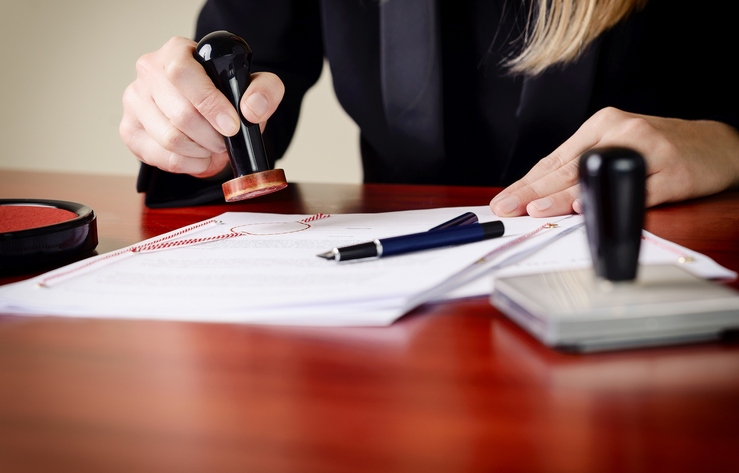

Not all countries have a notary to verify documents as they do in Spain. Here the Spanish notary is a very much respected individual whose office carries a clearly recognised ‘Notary’ sign and who trains for several additional years to qualify for the title. Most people associate the notary with Spanish power of attorney but their activities go much further than that.
Table of Contents
The notary is a professional within the Spanish law system and his/ her main function is to certify Spanish documents ensuring that private agreements fulfil certain legal criteria. The Spanish notary participates in the process of legalizing agreements and contracts, employing a stamp and signature for their endorsement.

The main difference between a Lawyer and a Notary in Spain is that the Lawyer deals with private documents such as contracts and might represent a client, for example in a law-suit. A notary, on the other hand, brings a document into the public domain.
The notary has a strict code to abide by and the Law for Notaries defines his function and the extent of his or her authority. The notary is qualified to a very high level and must pass some very strict exams to achieve this status. They study for four years to achieve the ‘Grado de Derecho’ which is the general law qualification that you need in Spain. They then study for a further period of time of between four to eight years in order to pass the public examination for Notaries and obtain the authorisation to take placement as a Notary.
The role of the notary includes:
In the majority of cases individuals can choose their notary, although the notary can only act within his/her own district. The number of Notary offices within each town depends upon the population and the actual placing of the office itself.
Notaries are an important regulator who can guarantee that the documentation in Spain is correct and would be considered authentic and proven in court. Any document requiring entry into a registry, such as the land registry, must be signed in the presence of the Notary.
Documents that can be signed before a notary include:
The notary isn’t always stuck in the office. They will sometimes be called out to complete a particular service such as being called to hospital to enable a seriously ill person to make a will. They are often present at some very important times in people’s lives. An example would be in cases of property transfer or the formation of a company that requires a constitution.
It might not be a role that we are familiar with in other European countries but the notary carries a great deal of respect in Spain.
If you are buying a property in Spain then you will have to pay notary fees. The notary fees when you are buying property in Spain are one of the legal costs that you must pay. There are other such as land registry fees and solicitor’s fees, for which you should obtain a quote before you begin the purchasing process.
The amount the notary charges is prescribed by law and depends on numerous factors such as value of the property, number of pages of Title Deed as well as attachments incorporated in the deed, and generally could be between 700 € and 1500 €. The Title Deed is inscribed at the Spanish Land Registry and the fee for this is usually around 300 € to 500 €, depending the exact amount on numerous factors.

Many people have found that taking out a power of attorney has been a useful action to take when buying their property in Spain. It can be difficult to combine ensuring that you are in the country as a non-resident with the date when all the documents are ready to sign. Taking out a power of attorney removes any uncertainty around this and can save some flight costs too.
Ábaco clients are taken to the notary office by their contact person at Ábaco. However, people acting independently can locate a notary by the notary emblem that they must display.
The notary fees when buying property in Spain through Ábaco are clearly indicated on the final fee sheet. This ensures transparency and clients can be clear exactly how the final bill has been reached.
If you have any queries regarding the Spanish notary or property purchase and management in Spain, you can fill out this form and we will contact you as soon as possible, with no obligation.